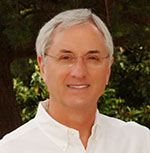 By Jimmy Adcox
By Jimmy Adcox 
Initiate Congregational Assessment and Education
While assessments are certainly not essential to helping churches become environments for spiritual formation, congregational assessments can help you be more aware and more intentional. They can also provide a benchmark for future progress.
We have found the REVEAL Survey (developed by the Willow Creek Association) to be especially helpful.[1] It will not only give you a snapshot of your congregation’s spiritual health, but interpreting it will also provide an educational process for church leaders about what does or does not foster spiritual growth.
This can help you focus on next steps that are especially helpful in your own church context. Several books have been written to explain the assumptions surrounding REVEAL and to chronicle the insights and discoveries that have come from studying hundreds of churches.[2]
Here are a few of the many discoveries that our Southwest Church learned from the REVEAL survey:
1. Our church was forced to deal with a startling reality: Involvement in church activities does not predict or drive long-term spiritual growth. Rather, spiritual growth occurs along a continuum of increasing relational closeness to Jesus Christ.[3] This is a huge paradigm shift. The implications of this reality have far-reaching effects on everything we do.
2. We also learned that this progressive continuum of growing closer to Jesus follows several stages: exploring Christ; growing in Christ; close to Christ; and Christ-centeredness. Further, there are four categories of spiritual catalysts and distinctive catalysts within each of them that most influence movement from one stage to the next. This is extremely helpful in ministering to people at different stages of spiritual development. The survey gave us a snapshot of how our church family is spread across this spiritual continuum.
3. Make listening to, being with, and practicing the presence of God an intentional, ongoing priority with elders and ministers. We learned that encouraging and equipping our people to engage in personal spiritual practices is a top priority. Spiritual practices are the building blocks for a Christ-centered life.
4. We discovered that our church scored more than 20%, and in some cases 50%, lower than the broader sample from other churches on “Reflection on Scripture” and “Bible Reading.” This was alarming, especially since REVEAL has shown that reading and reflecting on the Bible is the most powerful catalyst for individual spiritual growth. In fact, this is the only catalyst for spiritual growth that appears in the top five influences in all three transitional movements of growth.
5. In the first survey of our Southwest family, 17% of our sample considered themselves “stalled” in their spiritual growth. 22% were “dissatisfied” with the role the church plays in helping them grow spiritually. REVEAL provided insight into the most common reasons people are “stalled” as well as what helps people become “un-stalled.” REVEAL also helped us understand some of the causes and myths surrounding those who are “dissatisfied.”
6. REVEAL provided insight into what the church can do and cannot do to support spiritual growth. However, in the latter stages of growth, its role shifts from being the primary influence to a secondary influence. For people in the latter stages, the church must shift from being the primary provider of spiritual growth experiences to coaching and empowering people to become self-feeders and to accept kingdom challenges. This is a critical insight for creating spiritual environments for growth.
7. We also learned that Christ-centered people have enormous capacity for increased kingdom impact. This means that helping people mature in their relational closeness to Jesus Christ is the surest way to increase kingdom impact in our communities and in the world.
Congregational assessments such as REVEAL can help put a finger on the pulse of your church and provide helpful information toward developing an intentional plan of action to address congregational needs.
[1] www.REVEALnow.com
[2] Greg Hawkins and Cally Parkinson: REVEAL: Where Are You? Chicago: Willow Creek Resources, 2007; Follow Me: What’s Next for You?, 2008; Focus: The Top Ten Things People Want and Need from Your Church, 2008; and Move: What 1000 Churches Reveal About Spiritual Growth, 2011.
[3] Hawkins and Parkinson, REVEAL: Where Are You?, p. 33.

Leave a Reply